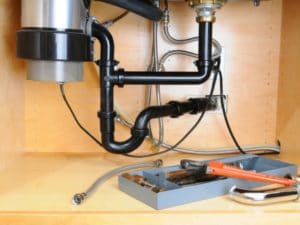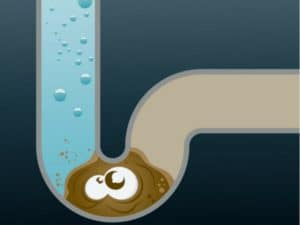Modern plumbing is designed to be safe, convenient and protect us from the old horrors of open sewers. So it fails in its job if sulfurous, rotten egg smells waft from drains and water pours from faucets.
There are many reasons this can happen, including clogged drains, cracked drain pipes, loose-fitting pipe connections, blocked vents and sewer back-ups.
With their know-how and expertise, the licensed professional technicians of Valley Plumbing can help you get to the root of your odor problem and find a solution.
1. Faulty Vents and Traps
To prevent sewer gases from backing up into homes, modern sinks in kitchens, bathrooms, and laundry rooms are usually equipped with curving P-traps underneath.
They collect water in the bottom of their U-shaped pipe to form a seal that doesn’t allow sewer gases to back up.
But if the traps dry out because of lack of use, high temperatures, or a leak, then this protection is removed.
The P-trap also requires proper venting, permitting air to come in to equalize the fluctuating pressure in the sewer lines, enabling the gases to flow up the stack to the outside.
If the venting gets plugged with snow, debris, or animal nest, the air can be pushed back down, breaking the seal in the P-trap and letting the noxious sewer odors flow in.
2. Water Heater Odors
Water heaters are a prime culprit when it comes to rotten-egg water smells. Odor-causing bacteria can grow in their moist interiors if the heat hasn’t been set high enough to kill the bacteria or if the water heater hasn’t been used for a long time.
A corroded anode rod can also be the culprit. Discolored water – brown, yellow, red, green – can also indicate corrosion in the water heater or pipes.
3. Sewer Line Back-ups
Gases from sewer lines backing up are not just bad smelling but can contain methane and bacteria that may pose dangers to your health, causing headaches and worse ailments.
A
If the problem is in the main sewer line, then the city or municipality will handle it. One way to tell if this is the case is if your neighbors also have the issue.
However, if the sewer is backing up through a single sink, toilet, or other drains, then the problem is in your private sewer line (which connects to the mainline), and you will have to contact a plumbing professional for help.

